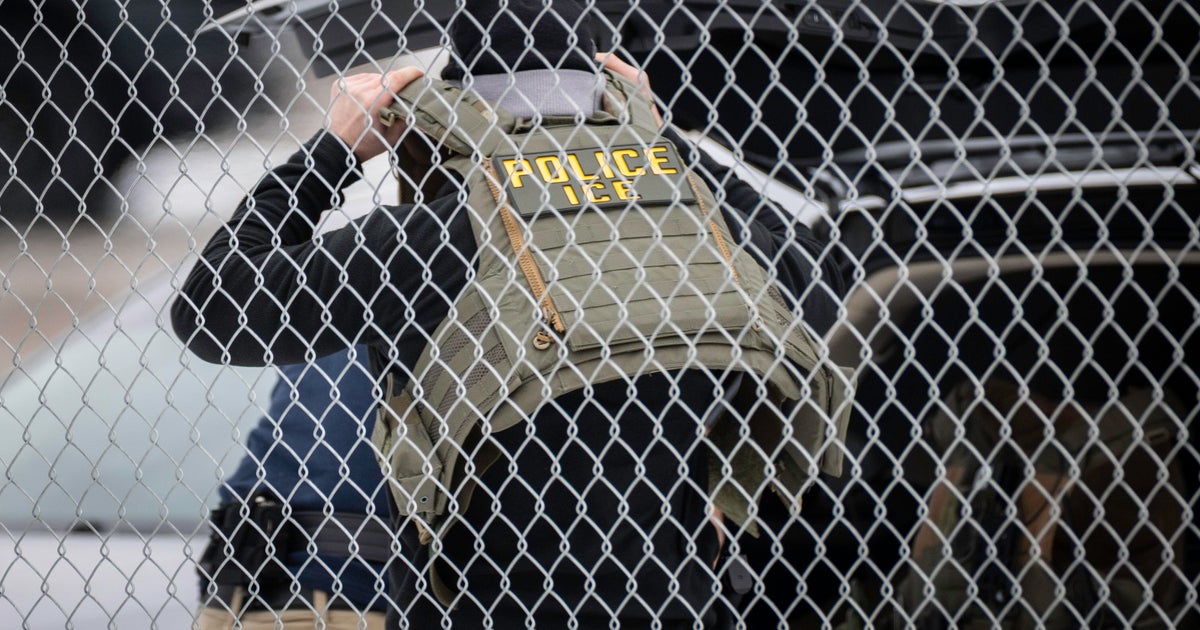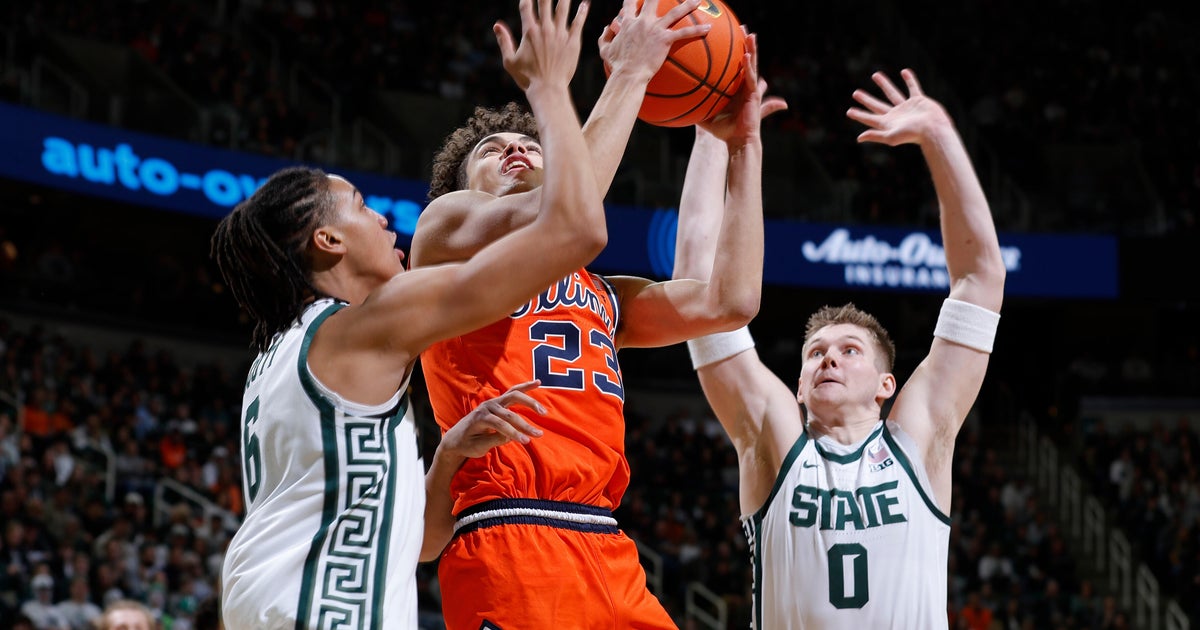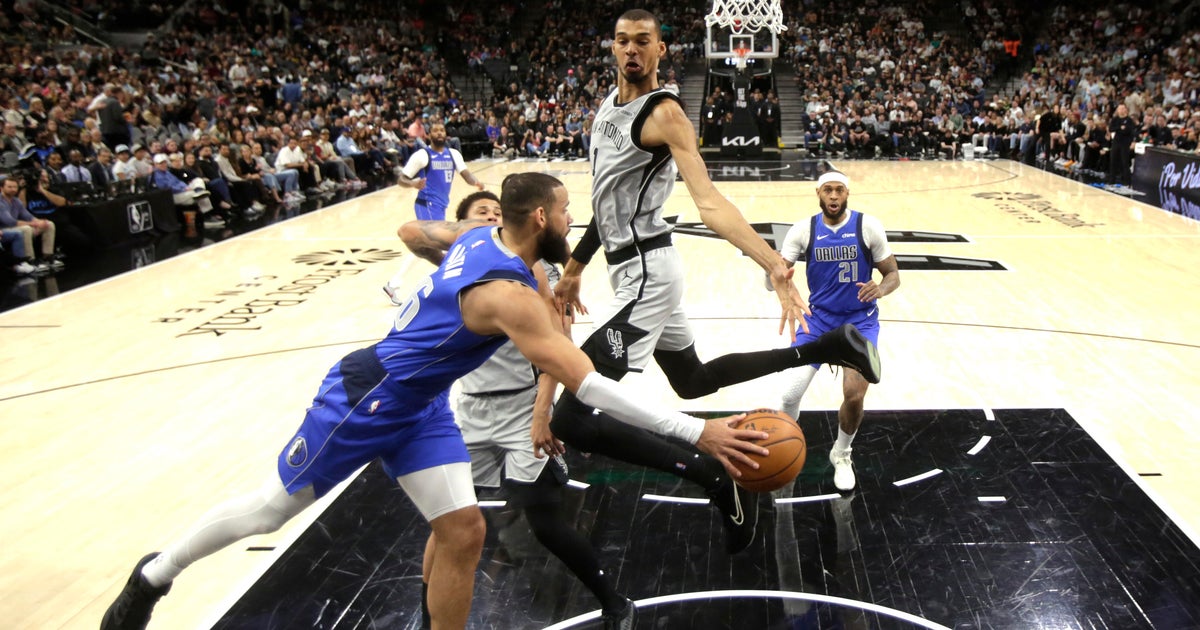The Big Ten, On Ice?
MINNEAPOLIS (AP) - Michigan, Michigan State, Minnesota, Ohio State, Penn State and Wisconsin: This is the Big Ten, on ice.
Conference athletic directors announced Monday their recommendation of a six-team men's hockey league that would start in the 2013-14 season, a proposal that will go before the Big Ten presidents and chancellors for approval in June.
When Penn State announced the launch of a varsity program for the 2012-13 season, the move to create a hockey conference became a mere formality.
"It was not a matter of if," Minnesota coach Don Lucia said, "it's when."
Both the Western Collegiate Hockey Association, which will lose Minnesota and Wisconsin, and the Central Collegiate Hockey Association, which will be left without Michigan, Michigan State and Ohio State, have been preparing for this for years.
"This will obviously have an impact on the WCHA. But change creates opportunity, too," WCHA commissioner Bruce McLeod said in a statement distributed by the league. "The commitment to excellence by our member institutions will not waver and working together we will push forward to assure our future remains bright."
Said CCHA commissioner Tom Anastos in a statement: "We are studying the potential impact of this change and will continue to work closely with our membership and other stakeholders in college hockey to ensure the ongoing long-term success of our league."
Wisconsin athletics director Barry Alvarez praised the timing, citing "consistency" with leadership and administration for the schools as a plus as well as the added exposure that will come on cable television through the Big Ten Network.
Alvarez said the BTN has committed to broadcasting at least 40 hockey games per season. That TV revenue is the engine behind the move.
"It's good for our fans," Alvarez said. "Our fans identify with the teams that we play in the Big Ten."
The Big Ten currently has 25 official conference sports, 12 for men and 13 for women; the last addition was women's rowing in 1999.
Hockey would hold a 20-game conference schedule, with each team playing each other four times per season, and a postseason tournament to award the league's automatic bid to the NCAA tournament. Big Ten spokesman Scott Chipman said a site for the tournament is yet to be determined.
"It'll take a while for people to get used to," Lucia said. "But 10 years from now, it will be the new norm and that's how we'll view it."
The Big Ten teams are working on nonconference scheduling arrangements with the rivals they'll leave behind in the WCHA and CCHA, respectively. The primary concern in college hockey about the Big Ten creation is the effect it could have on smaller programs in those leagues, like Bemidji State or Lake Superior State, that rely on ticket revenue from games against marquee teams like Minnesota and Michigan. The 59-year-old WCHA currently has 12 teams, and the 40-year-old CCHA currently has 11 teams.
Minnesota athletics director Joel Maturi acknowledged "mixed emotions" about leaving the WCHA. Nebraska-Omaha coach Dean Blais said he's not sure the move is good for Minnesota and Wisconsin and that he "doesn't see any positive" for the WCHA with their departure.
"We've known it's coming, but we have to look at whether it's good for hockey in general," said Blais, whose team joined the WCHA this season. "Is it a money-driven thing? Are you going to tell me Iowa is going to add hockey because it's a Big Ten sport now? Come on up, show me the money."
Still, Blais, Lucia, McLeod and others insisted the WCHA will survive.
"We have a pretty good strong conference when we're getting four and five teams into the NCAA tournament," Blais said.
With 14 nonconference games, Minnesota and Wisconsin should be able to continue playing perennial power North Dakota on a regular basis. The Gophers, too, can keep playing in-state rivals in Bemidji, Duluth, Mankato and St. Cloud.
"We want to play our natural rivals as much as we possibly can," Lucia said. "There is great history there."
The man who spurred this all, Penn State donor Terry Pegula, said in a statement he's glad it "came together so quickly." Pegula's $88 million gift was earmarked for an arena in his name and the establishment of a varsity hockey program.
"One of the main reasons I decided to make the gift to Penn State was to see the great sport of college hockey evolve," said Pegula, the owner of the NHL's Buffalo Sabres. "Congratulations to the Big Ten Conference for making this leap of faith, and I hope it can serve as a catalyst for the growth and exposure for the game of hockey in North America."
AP Sports Writers Jon Krawczynski in Minneapolis, Eric Olson in Omaha, Neb., and Colin Fly in Madison, Wis., contributed to this report.
Copyright 2011 by The Associated Press. All Rights Reserved.







